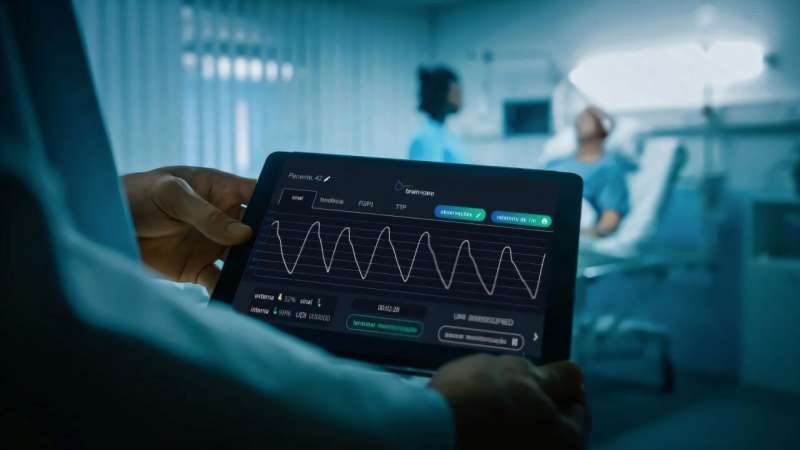“The study included the largest number of patients and showed that the technology we developed had the lowest error in estimating the value of intracranial pressure among all the non-invasive methods already available in the world,” Gustavo Frigieri, scientific director of brain4care and one of the authors of the study, told Agência FAPESP.
The technology developed by the Brazilian company consists of a sensor placed on the patient’s head that registers the nanometric expansions of the skull in each cardiac cycle and generates, in real time, a wave that indicates the variations in volume and intracranial pressure. The data obtained are processed by an artificial intelligence platform that generates reports to help doctors make decisions.
According to Frigieri, the difference in the solution developed by brain4care is the way it analyzes ICP, which has three basic components: the numerical value, the trend (up or down), and the morphology of the pulse. Instead of focusing on the numerical value, as traditional methods do, it evaluates the morphology of the pulse – that is, the way it behaves over time. This approach makes it possible to identify changes before they manifest themselves in the numerical values of the pressure.

